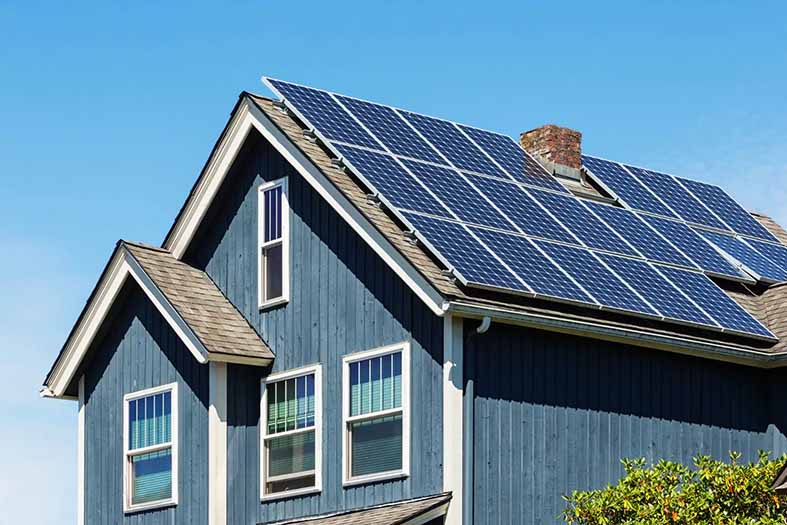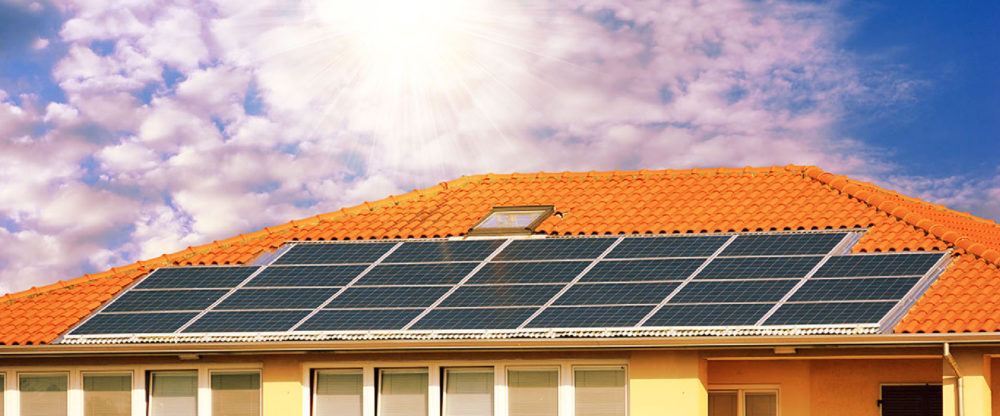Here’s what to know if you’re considering solar power for your home or business

Here’s a brief primer on solar power.
The cost of rooftop solar for homeowners and small businesses has fallen by more than half in the past decade.
- Ten years ago the cost was roughly $8 a watt.
- Now the cost is roughly $3.50 a watt.
Rooftop solar is a long-term investment given the high upfront cost.
- A system that can generate six kilowatts, for example, costs about $21,000.
But federal and state tax credits help offset the cost.
- A federal tax credit of 30% — $6,300 for a system costing $21,000 — reduces the upfront cost.
- A rebate from the state Focus on Energy fund further reduces the cost. The rebate is roughly 12% of the cost after the federal tax credit, up to $2,000 for homeowners and $4,000 for businesses.
- The tax credits reduce the upfront cost of a six-kilowatt system to about $13,000.
Financing options are available.
- Loans to cover the upfront costs of a solar system are available through the Clean Energy Credit Union and other lenders.
- Companies that install solar panels also offer financing, but be sure to read the fine print.
Homeowners and businesses should install systems that meet their needs.
- Utilities pay wholesale rates when a homeowner or business generates more power than it uses in a given month.
- Wholesale rates are much lower than the retail rate that homeowners and businesses pay for electricity.
- For this reason, the return on selling excess power to a utility doesn’t justify the cost of buying additional solar panels.
Homeowners and small businesses get a credit for the electricity they generate during the day that offsets the electricity they use at night or on cloudy days.
- The excess power generated during the day offsets the electricity used when solar panels are not generating electricity or not operating at their peak capacity, such as on cloudy days.
- Homeowners and small business in most cases still will need to buy electricity from a utility during some months of the year, such as cloudy winter months.
We Energies is seeking approval from state regulators for a surcharge on residential and small business customers with solar power.
- We Energies contends that customers with solar panels don’t pay their share of the cost of the transmission and distribution system, shifting costs to other systems.
- The proposed surcharge is $3.53 for each kilowatt of solar generating capacity.
- That would work out to $21.18 a month, or about $254 a year, if approved by state regulators, for a homeowner or small business with a six-kilowatt system.


